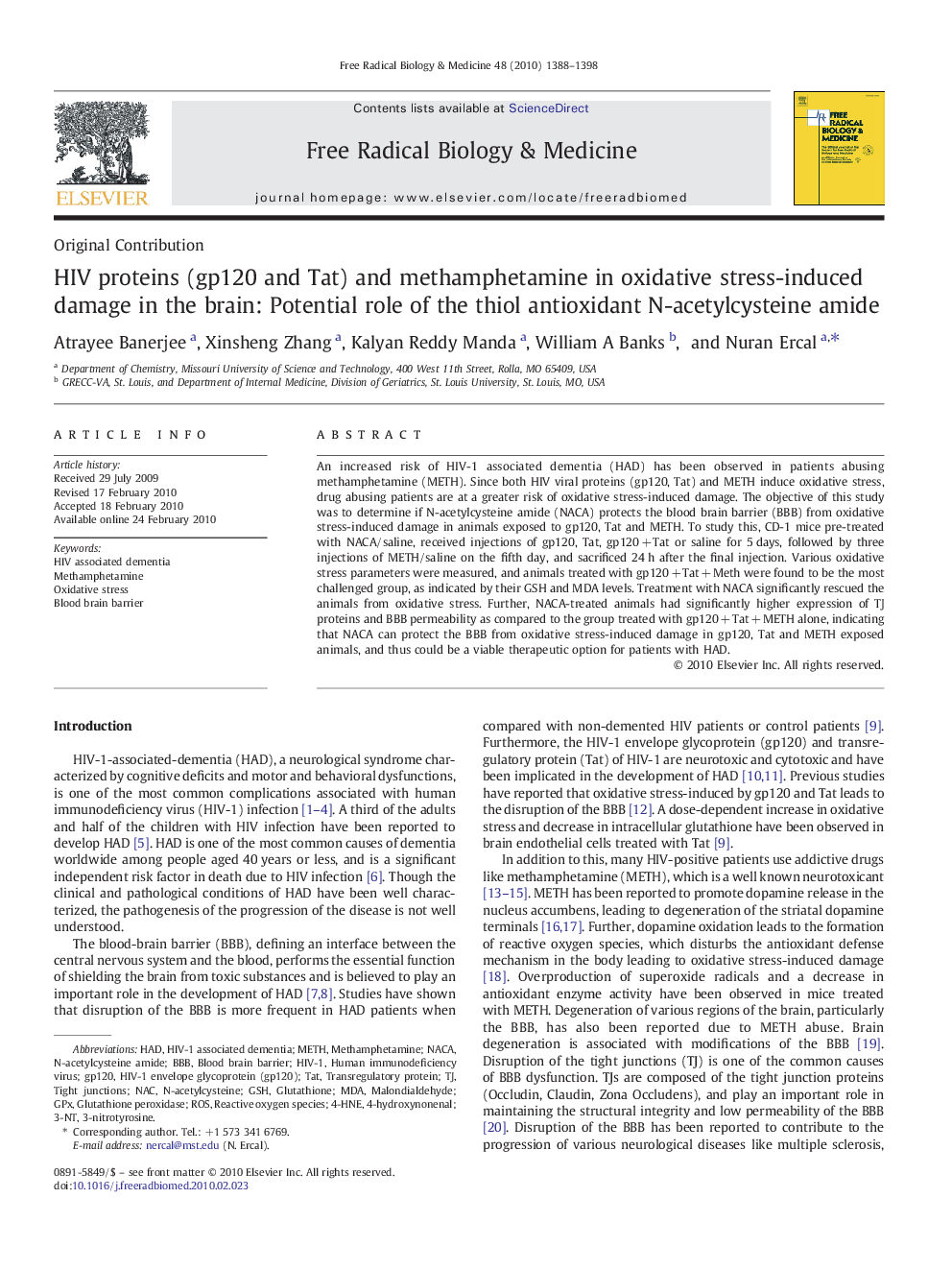| Article ID | Journal | Published Year | Pages | File Type |
|---|---|---|---|---|
| 1909516 | Free Radical Biology and Medicine | 2010 | 11 Pages |
An increased risk of HIV-1 associated dementia (HAD) has been observed in patients abusing methamphetamine (METH). Since both HIV viral proteins (gp120, Tat) and METH induce oxidative stress, drug abusing patients are at a greater risk of oxidative stress-induced damage. The objective of this study was to determine if N-acetylcysteine amide (NACA) protects the blood brain barrier (BBB) from oxidative stress-induced damage in animals exposed to gp120, Tat and METH. To study this, CD-1 mice pre-treated with NACA/saline, received injections of gp120, Tat, gp120 + Tat or saline for 5 days, followed by three injections of METH/saline on the fifth day, and sacrificed 24 h after the final injection. Various oxidative stress parameters were measured, and animals treated with gp120 + Tat + Meth were found to be the most challenged group, as indicated by their GSH and MDA levels. Treatment with NACA significantly rescued the animals from oxidative stress. Further, NACA-treated animals had significantly higher expression of TJ proteins and BBB permeability as compared to the group treated with gp120 + Tat + METH alone, indicating that NACA can protect the BBB from oxidative stress-induced damage in gp120, Tat and METH exposed animals, and thus could be a viable therapeutic option for patients with HAD.
